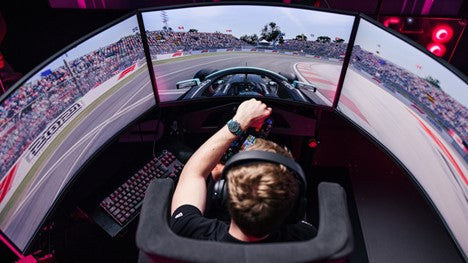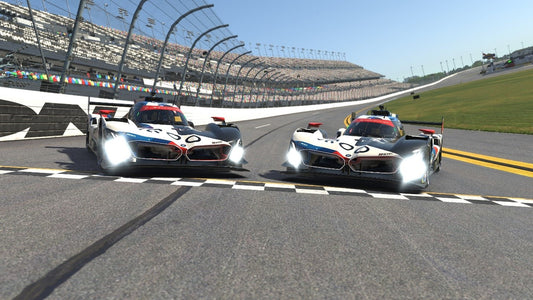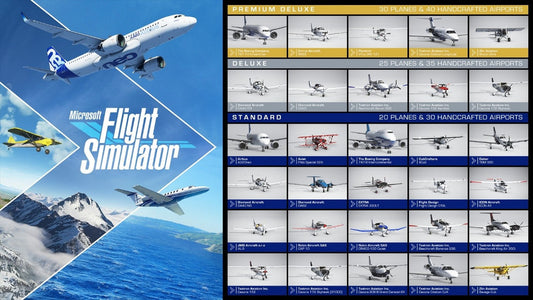The Psychology of Sim Racing and How It Impacts Your Mental Health

When it comes to sim racing, what most people think of is speed, competition, and precision driving. But what they don’t see is the mental workout behind the virtual wheels. Someone once said, “Sim racing is as much a battle of minds as it is a test of skills”, and I couldn’t agree more.
From the moment you put your foot on the pedal till the moment you cross the finish line, your brain undergoes an immense flurry of cognitive functions. And how well you manage these is directly proportional to how you perform on virtual tracks in racing simulators.
This over-the-top, electrifying world of professional motorsport requires more than just technical prowess and fearlessness, and the psychology of sim racing and the human mind behind proves it.
As such, in this article, I’ll show you how the simulators and racing psychology go hand in hand with each other, by highlighting how sim racing impacts your mental health, any drawbacks, and how to overcome them. Let’s get started!
Benefits of Sim Racing on Your Mental Health

Stress Relief
Firing up your sim rig can act as a mental reset for you. When you're immersed in a race, there's no time to dwell on what happened earlier at work or what’s waiting in your inbox. Sim racing pulls your focus completely into the present moment.
This kind of mental escape works like therapy. It’s not just about chasing lap times; it's about giving your mind a break from daily chaos. For many, racing simulators act as a safe haven. You’re not thinking about work, bills, or that awkward text conversation because you’re in the zone.
And that’s the beauty of it: the pressure on track ironically becomes your relief off track.
Faster Thinking / Better Reflexes
One of the most overlooked aspects of simulators and racing psychology is how they train your brain to be in the now. Sim racing demands a lot from your brain. You’re calculating your next move, adjusting your strategy based on opponents, and reacting to split-second changes — all at high speed. This kind of mental activity builds cognitive muscle.
In simple terms: you’re training your brain to think fast and smart. Studies have shown that regular engagement with fast-paced simulation games can improve decision-making, hand-eye coordination, and mental agility. And that doesn’t just stay in the game. You’ll likely find yourself reacting quicker and thinking more clearly in everyday life, too.
Boosted Confidence
There’s something incredibly satisfying about nailing a perfect corner, improving your lap time, or finally winning that difficult race. Without you even realising, these little wins in the sim racing world give your self-esteem a major boost.
You start trusting your instincts more. You start believing that with effort, you can improve. And this shift in mindset then gradually begins to spill over into real life, whether it’s making decisions at work or handling unexpected challenges. This psychology of sim racing highlights how progress in the virtual world can directly uplift your self-worth and motivation outside of it.
Improved Discipline
If there’s one thing sim racing teaches you, it’s how to concentrate. One small mistake can cost you the whole race, so you gotta stay locked in mentally, lap after lap, corner after corner. When you keep this level of focus sustained for a long time, it trains your brain to stay present and mindful, which is a rare skill these days.
Enhanced Spatial Awareness
Navigating a car at 200 km/h, even virtually, demands serious spatial awareness. Sim racing trains you to judge distances, angles, and track layouts with precision. As your racing sense sharpens, so do your real-world reactions.
It’s no surprise that many professional drivers use simulators to keep their reflexes in top shape, and everyday players benefit from this too. This spatial awareness becomes second nature over time and helps in more areas of life than you'd expect, such as in parking your car to driving through busy crowds.
Potential Adverse Impacts of Sim Racing

While sim racing offers a ton of mental benefits, it’s important to be real about the other side of the story, too. Like any intense activity, sim racing can take a toll on your mental well-being if not managed properly.
Therefore, understanding these simulators and racing psychology-related challenges is key to staying balanced and enjoying the ride long-term.
Online Negativity and Bullying
The internet isn’t always the friendliest place. And sim racing communities, though mostly positive, aren’t completely free from toxic behaviour. Sometimes, racers face rude comments, unfair criticism, or even direct bullying from other players. When people hide behind a screen, they often say things they’d never say in person.
This can be discouraging, especially for newer sim racers who are just finding their way. But here’s the truth: most of the community is welcoming and helpful. Still, it’s good to be aware and develop a thick skin when diving into the competitive side of sim racing.
Mental Fatigue
Now here’s something many racers don’t talk about enough — mental exhaustion. Sim racing might look like “just a game” to outsiders, but anyone who’s spent time on the virtual track knows it’s far more demanding. You’re constantly focusing on the road, reacting to fast changes, learning new circuits, and staying sharp for long periods. All this can lead to mental exhaustion.
After several intense sessions, your brain can feel drained, and hence your performance drops. It’s not weakness, though. It’s simply your mind asking for a break. That’s why taking regular rest and being hydrated are recommended by experts as essential parts of healthy racing routines in the psychology of sim racing.
How To Overcome These Issues?

Now that we’ve looked at some of the mental challenges in sim racing, the next step is learning how to manage them. The good news? With a few small changes, you can turn every setback into a comeback. That’s the power of understanding the psychology of sim racing, which isn't just about understanding pressure and focus, but also about learning how to manage them.
Prepare Like a Pro
Confidence starts before the lights go green. Spend some time learning the track, practicing your braking zones, and getting comfortable with your car setup. When you know what to expect, your confidence naturally rises, and that helps reduce nerves and improve performance.
Pre-race preparation isn’t just physical, it’s mental, too. The more you prepare, the less nervous you’ll feel on race day.
Practice Mindfulness
It might sound simple, but deep breathing, short meditation sessions, or even just sitting still and visualizing a clean lap can go a long way. These mindfulness techniques help you stay calm and focused during intense moments. Remember, a calm mind reacts faster and makes better decisions.
Shift Your Focus from Winning to Improving
Winning is great, but it’s not everything. Instead of stressing over first place, aim to beat your personal best, stay consistent, or improve your lap time. Simulators and racing psychology show that small, achievable goals keep the mind motivated and positive without unnecessary pressure.
Learn From Mistakes
Everyone makes mistakes, even top racers. Don’t let a crash or spin ruin your mindset. A missed braking point or a spin-off doesn’t define your skill. What matters is how you respond.
Instead of getting frustrated, treat every mistake as feedback. After the race, take a few minutes to reflect. What went wrong? What can you do better next time? With this attitude, every failure will become a lesson.
Eliminate Distractions
Your focus is a resource, so protect it at all costs. When you race, give it your full attention. Turn off notifications, close background apps, and find a quiet space. This not only improves your results but also reduces the chances of mental fatigue.
Build a Supportive Racing Circle
Last, but not least, racing shouldn’t feel like isolating yourself. Therefore, I highly suggest you join a sim racing community. Just give it a search online, and hundreds of Discord servers and similar results will pop up.
Chatting with fellow racers and sharing your highs and lows while being part of a positive community can really make a huge difference in keeping you motivated and mentally balanced.
Final Thoughts

In the end, the psychology of sim racing goes far beyond speed and competition. It's about mental growth, focus, and emotional balance. When approached with awareness, sim racing can become a powerful tool for both personal development and mental wellness. So next time you hit the track, remember it’s not just about your skills behind the wheel that matter, but also the strength of the mind driving it all.





